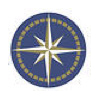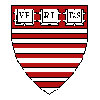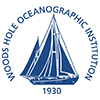Project Overview
TREET is an oceanographic research program nested within an educational opportunity for aspiring undergraduate science majors and an ethnographic study of the growing culture of remote scientific research. This NSF-funded project is designed to create an informed view of emerging trends in telepresence-supported ocean-going research that will also provide students with real-time participation in an active deep-ocean research initiative, while also improving our understanding of greenhouse gas fluxes from the seafloor to the oceans and the atmosphere.
A core team of early-career scientists and their students—overseen by mentors with relevant experience and expertise—will be engaged in research to investigate the geological controls, transport, and biogeochemical fate of the greenhouse gases methane and carbon dioxide as they are released to the ocean from the seafloor of the Caribbean. Rather than conducting their research in a conventional manner aboard a research ship, however, this team will make extensive use of the Inner Space Center (ISC) at the University of Rhode Island and a satellite telepresence facility at the Woods Hole Oceanographic Institution (WHOI) as their base of operations. From there, they will be connected via a satellite link and telepresence technology to the E/V Nautilus and the ROV systems Argus and Hercules.
At the same time, another team will investigate new collaborative tools and work practices for remote research and learning that will be tested and evaluated with these early-career ocean scientists, their students, and their mentors. To start the cruise, the entire team will work together at the ISC to establish work practices and a group dynamic most closely comparable to that experienced at sea. During a later stage of the cruise, a subset of the science team will be relocated to a smaller, more remote command center at WHOI. The latter group will more closely resemble future research scenarios in which multiple collaborative centers are scattered throughout the U.S. and around the world.

Year 1 (Completed: 2013-2014)
- Familiarization with the relevant technologies, the research environment, and the goals of the overall program
- Live online virtual classroom education of participating students
- Development of specific research programs by early career scientists and their students
- Development of the research cruise plan for Year 2
Year 2 (Under Way: 2014-2015)
- Implementation of research cruise, including near-real-time, large-volume data sharing and processing to enable timely, informed decision-making, and direct student participation
- Open-access data sharing and publication of post-cruise results
- Student-led on-line seminars
- Work-up of ocean science results for 2016 Ocean Sciences meeting.
- Publication of ethnography and education research results
Year 3 (2015-2016)
- Completion of grant award period
- Publication of final report and recommendations to NSF for future work
Throughout the program, the principal investigators will conduct a thorough evaluation of the tools and practices they develop. An important goal by the end of Year 2 will be to draw together recommendations on the best way to incorporate the emerging new paradigm of data-intensive, open-access science.
The final activity for the project in Year 3 will be to draw together a final report on all the activities undertaken. We anticipate submitting a request for a related special session to present our scientific results at the AGU/ASLO meeting in spring 2016 (within the final year of the grant) but our highest priority will be to present a series of recommendations on the future use of telepresence both to NSF and to other interested parties.
This is an important goal because we anticipate that the results of the TREET program will be relevant well beyond the ocean sciences as the use of telepresence technologies and methods grows. While our work will be specifically relevant to how telepresence could be used more widely, nationally and internationally, across all deep ocean exploration and research in future, the outcomes for the TREET project could also provide an important first step in new endeavors in computer and information sciences, as well as educational research, that will be widely applicable across multiple other fields of research and education.
References
CR German, Bell KLC, Pallant A, Mirmalek Z, Jasanoff S, Rajan K, and the TREET (Transforming Research in Oceanography through Education) Scientific Team (2014), Ethnography and Rapidly Evolving Technologies: An NSF-INSPIRE project. EOS Trans. AGU (Invited Abstract), in press.
Partners



